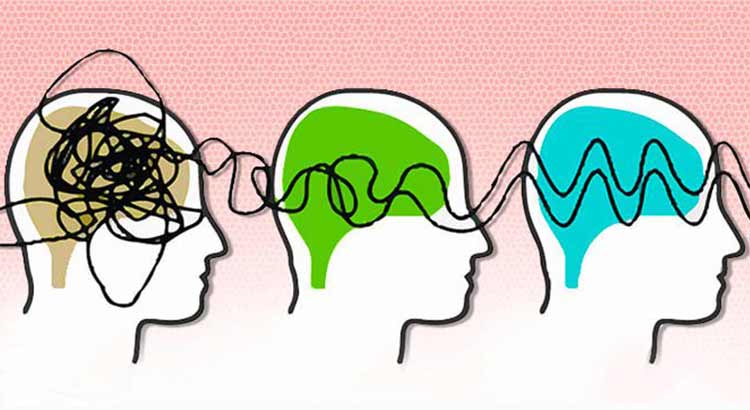SCIENCE SHOWS MEDITATION CAN KEEP THE BRAIN YOUNG (AND GUIDE FOR BEGINNNERS)
Plenty of scientific studies have shown that physical exercise is a powerful tool to slow down the effects of aging. Among other benefits, regular exercise helps us maintain our strength, endurance, and flexibility as we age.
Plenty of scientific studies have shown that physical exercise is a powerful tool to slow down the effects of aging. Among other benefits, regular exercise helps us maintain our strength, endurance, and flexibility as we age.
Now it turns out that there’s an easy way to slow down the aging in our brains! An exciting new study from Harvard University shows that a simple practice, if done regularly, can prevent aging in the brain. The tool? Meditation. We’ve all heard that it produces feelings of relaxation and peace, and is good for stress reduction. Now, for the first time, scientists have actual proof that meditation can actually reverse the aging process in the brain. Using sophisticated medical technology, Harvard researchers have shown that meditation produces measurable changes in crucial parts of the brain that control emotion, memory, and learning.
THE STUDY
In the 8-week study, Harvard researchers used magnetic resonance imaging to compare the brains of two groups. One group practiced mindfulness meditation exercises for 27 minutes per day during the 8-week period, and the other group did not meditate during the study. Both groups also filled out questionnaires before and after the study that measured participants’ levels of stress and anxiety. MRI scans of participant’s brain were taken both before and after the study. At the end of the study, the MRI images showed striking differences between the two groups in crucial areas of the brain that control emotion and thought.

THE RESULTS
The researchers found that the hippocampus, which usually shrinks with age, was thicker in the meditators after the 8 weeks, and unchanged in the nonmeditators. The hippocampus controls memory, learning, self-awareness, and compassion; functions associated with mindfulness meditation. The amygdala, which controls emotions such as stress and anxiety, showed a decrease in density in the meditators. The researchers associated this decrease with the reduction reported by the meditators, but not by the other group.
BENEFITS OF MEDITATION IN DAILY LIFE
So, how would these brain changes brought about by meditation translate into real life? The meditators reported feeling less stress and anxiety than the control group. Meditation causes you to slow down repeatedly and to practice focusing on your breath (or a mantra or image, depending on what kind of meditation you are doing). This can build the habit of stopping before you react, instead of just reacting without thinking. Say an angry coworker approaches you with an angry comment, accusing you of making a mistake. If you aren’t prepared, your instincts would probably be to go on the defensive, and you might find yourself in an argument. If you stopped and took a breath before you began your conversation, however, you could approach the conversation in a way that would help your coworker to relax and to release his or her anger. If someone cuts you off on the highway, your habit of pausing to breathe before reacting might stop you from reacting with a loud honk or an angry gesture. Feeling less angry and stressed can enhance your life and the lives of those around you, as well. In addition, your brain will remain active and retain the ability to learn and remember, functions that we tend to lose as we age.
HOW TO MEDITATE
If you’ve never meditated, but would like to start, there are many resources available. If you’re interested in meditating with a group, just Google “meditation groups” and see what you can find near you. Many excellent books and tapes with meditation instructions and guided meditations are available on Amazon. Tara Brach and Pema Chodron are two widely popular teachers who have published books and tapes on meditation. There are many other wonderful teachers in addition to those two.

A MEDITATION FOR BEGINNERS
Here’s a very simple meditation you can do anywhere, anytime – in your living room, your office, even your car.
1. Take a comfortable position: you can sit cross-legged on a cushion, or upright on a chair, whichever is most comfortable. Your spine should be upright but not stiff, shoulders relaxed. Keep your head up, as if lifted by a invisible string. Place your hands firmly on your thighs, palms down or upright, whichever feels more comfortable.
2. Direct your gaze a few feet in front of you. Hold a soft, steady gaze.
3. As you breathe in and out, taking deep, natural breaths, keep your attention on your breath. When your mind wanders (and it will) gently bring your attention back to your breath. In the beginning your mind will be very busy and full of chatter; don’t worry! Just let your thoughts rise and fall and keep coming back to the breath.
4. Start with 10 minutes per day. Gradually increase your time as you feel more comfortable with the practice.
Again, if you want to go further, seek out some of the resources mentioned in this article. As you go along, know that not only are you reducing your stress and anxiety, but you are keeping your brain young and healthy, too!
- Seminar: ELEVATING LEADERSHIP WITH EMOTIONAL INTELLIGENCE IN THE AI ERA
- 5 REASONS YOUR COMPANY SHOULD BE INVESTING IN MINDFULNESS TRAINING
- HOW TO PRACTICE MINDFULNESS
- Want to increase trust in your leadership abilities?
- Three Ways to Build and Maintain Your Team’s Motivation
- How to Navigate Conflict with Emotional Intelligence
- How to Manage Conflict at Work
- WHAT REALLY DRIVES US: HOW TO BUILD TEAM PERFORMANCE THROUGH INTRINSIC MOTIVATION
- THE IMPACT OF EMOTIONAL INTELLIGENCE ON EMPLOYEE ENGAGEMENT
- THE IMPACT OF EMOTIONAL INTELLIGENCE ON EMPLOYEE ENGAGEMENT





